How We Conduct our Classes
Our science classes are not “age appropriate.” We assume that the students can understand things better than adults.
We don’t teach concepts, vocabulary, and facts. We provide problems to solve, hidden in crazy cliff-hanger stories, and we let the students develop their own concepts, vocabularies, and facts.
We don’t collect, calculate, or tabulate numbers. We let the students observe the experiments, and experiment with the experiments, so that they can discover what is happening.
We keep secrets. We don’t tell the students what’s going to happen in the experiments — we let them discover that for themselves.
We don’t use kits or “cookbook science.” Our experiments leave room for unexpected results and surprising discoveries.
We don’t deal with real-world problems. Through storytelling, we create an imaginary world where the “Acme Store of Everything” allows access to anything the student may want to use. We provide conflict through Jack and Jill against the Evil Mister Fred. And we have experiments where anything can happen.
We are not serious about science. For instance, we might say, “Hot air rises so I’m going to build a swimming pool on the top of Mount Everest where all the hot air collects.” Through the magic of humor, we let the students relax and try to figure things out for themselves.
We do dangerous things. We use hot glue guns, sharp knives, matches, high voltage, and dangerous chemicals. In the process, the students learn how to deal with dangerous situations in a manner that will enable them to keep themselves and others from harm.
Here’s a video of students learning how to safely handle flames.
We don’t treat students like little children. If they hurt themselves we give them “extra points,” patch them up, and carry on.
We are not “fair” in our dealings with the students. We run the classes based on “Evil Mister Mac’s Rules of Unfairness.” If one student happens to get more materials than another, or if somebody gets an extra turn, that’s just the way it is. Complaining is futile.
We don’t always give the students what they need. Sometimes students have to improvise, borrow from other students, or ask for the materials that they want.
We encourage cheating. If the students see someone else doing something they like, they are free to copy them to see what happens — it’s the American Way to success.
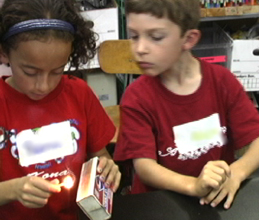
We don’t encourage students to work independently. That’s too easy. We want students to learn how to work with others by hashing out some sort of compromise and completing the experiment together.
We encourage students to fail. A one-shot single experiment that works perfectly is nearly worthless. When students try different ideas before they achieve success, they will learn much more and will appreciate the work they did to make it work.
The Seven Secrets of Rock-it Science
1. Learning With the Whole Mind
Children learn best when they engage their whole mind — the visual, creative right brain, as well as the linear, analytical left brain. Rock-it Science lessons are carefully designed to appeal to children’s natural creativity and imagination.
2. A Stress-Free Environment
We provide a stress-free environment, with no note-taking, memorizing, homework, or tests. We make science fun, so children will become confident and excited about learning science. (Read more)
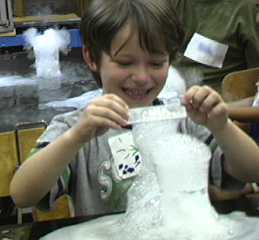
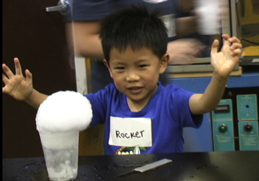
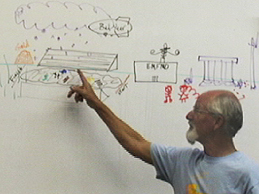
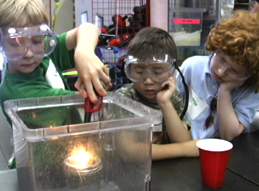
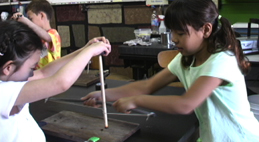

Follow Us